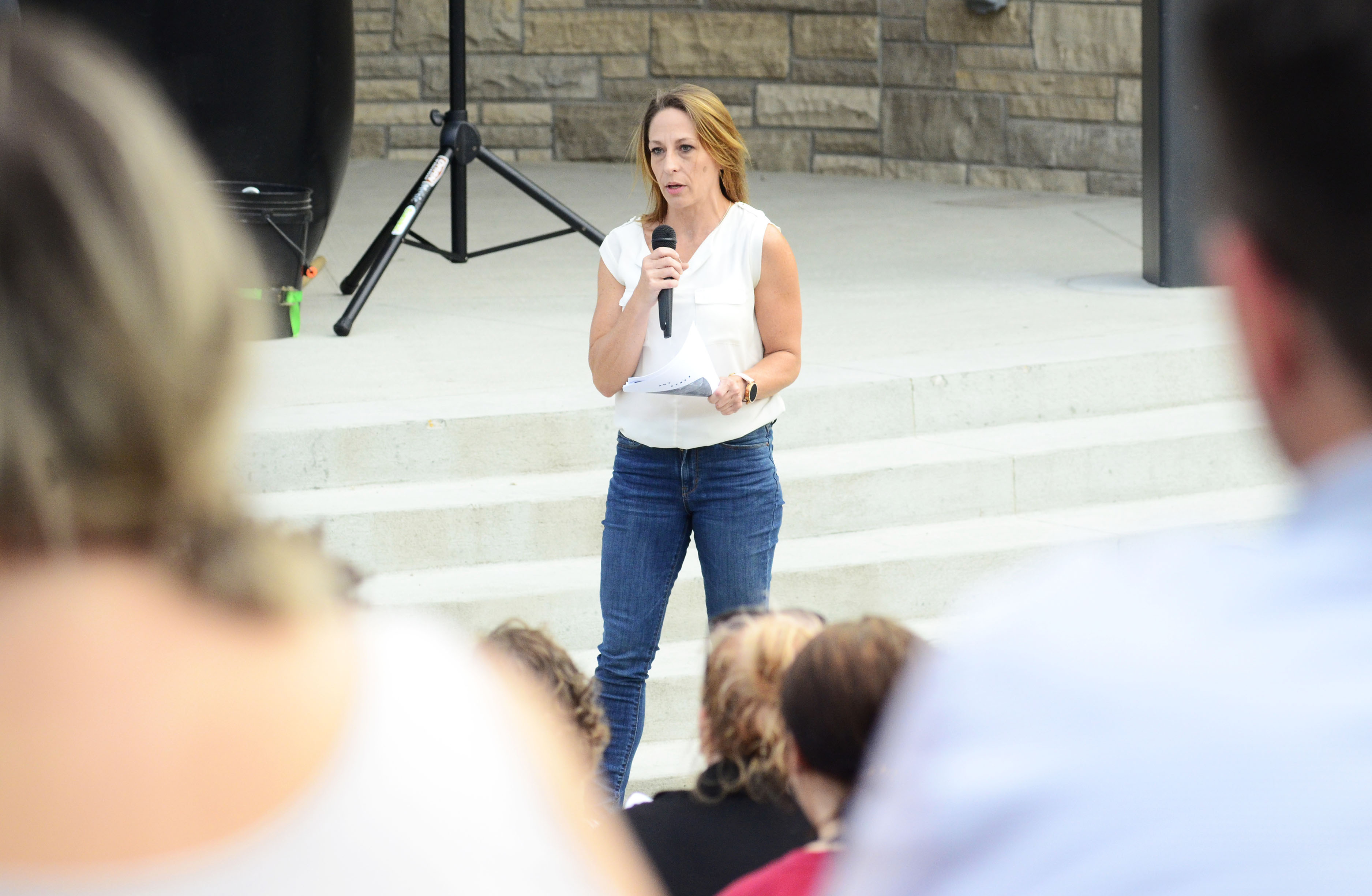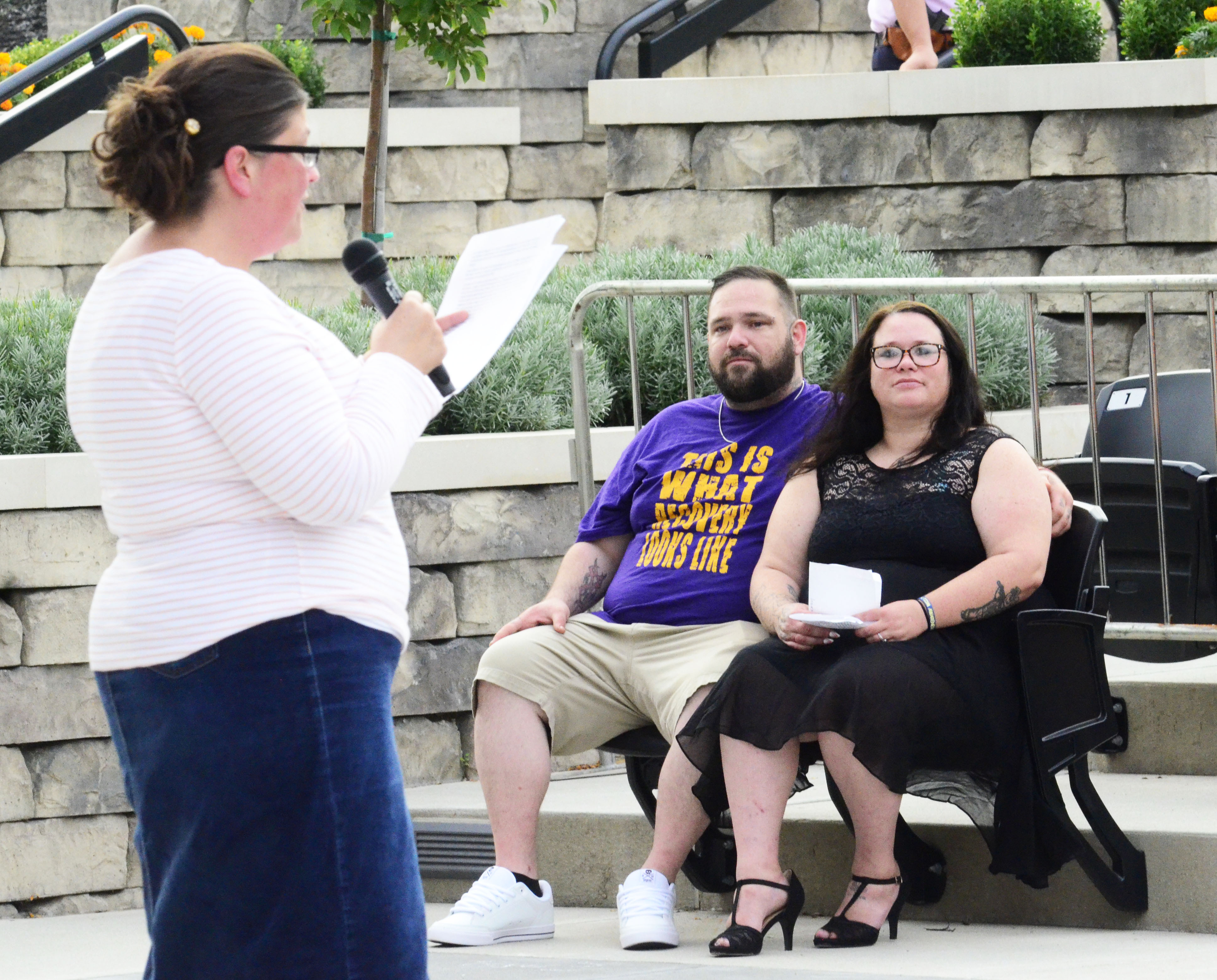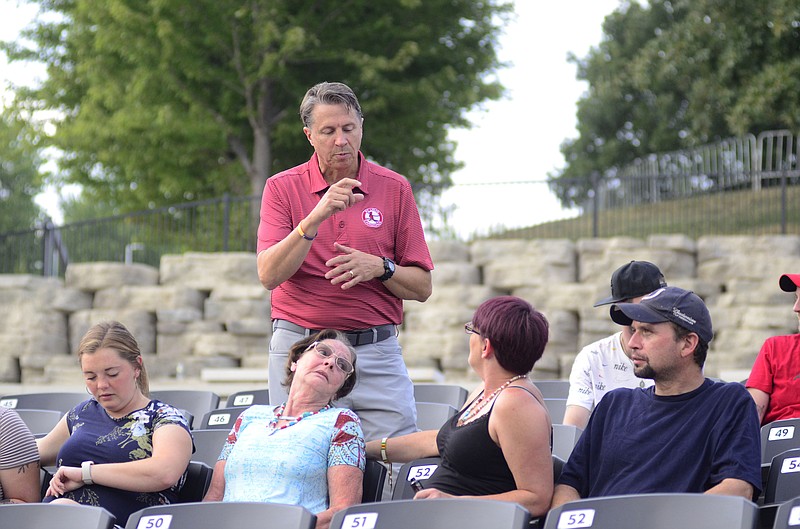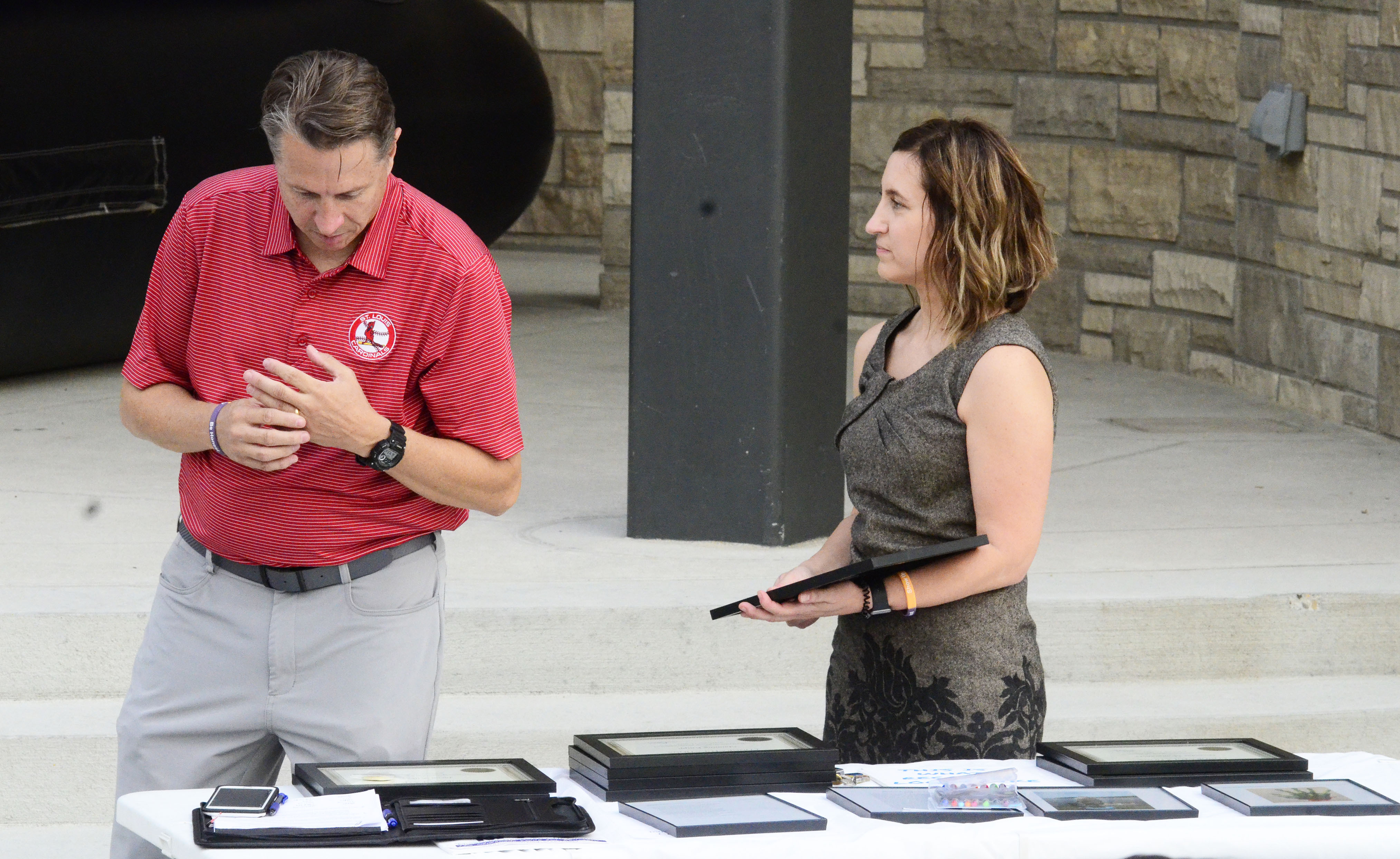Candice Thomas and Chad Miller's crimes made headlines in newspapers across three states -- Arkansas, Illinois and Missouri, Thomas said.
Police raided their home because of their methamphetamine use a couple of years ago.
"We were in a lot of trouble," Thomas said.
But they were also struggling with addictions. They entered recovery programs following their arrests.
Thomas ended up in treatment court, and was one of 11 people who graduated from three of Cole County's treatment courts Wednesday night at Ellis-Porter Riverside Park.
Cole County Circuit Judge Cotton Walker, who presides over the specialty courts, said all the graduates expressed deep relief during the graduation ceremony. Treatment courts are a minimum of 14 months long, although some participants may take more than two years to complete the programs. People have setbacks, he said.
Setbacks may be related to their recovery, but they may just come about because of hurdles that life puts in front of participants, such as family or medical issues.
"(Participants) are intimately connected to their recovery, the treatment community and what their needs are," Walker said. "They've done the hard work."
Participants are modest, he said. They don't mind being recognized for the hard work, but they don't want to be celebrated.
And knowing the hard work each goes through, they cheered on each other's accomplishments Wednesday night.
Thomas has really thrived in recovery, and is now helping by leading others as a peer-support specialist at Landmark Recovery, Walker said.
He added he grew up down the street from Thomas' mother and grandmother, so knew the young lady all her life.
Thomas said she could never have dreamed of getting sober, graduating from drug court, working at a recovery center, or re-connecting with her family a few years ago.
"I never thought I'd be thankful for sitting in jail with a no-bond warrant for long enough to sober up and make the first good choice that I'd make in a really long time," Thomas said. "I never thought I would be welcomed by my family, my kids and my friends again."
She also said she never thought she would become a role model or mentor, or that she'd be proud of herself. But she attained all those things.
"I am so thankful for every person and every program and every class that supported me through everything I never thought I'd get through," Thomas said. "I know you had your doubts, too. I know they didn't really want to take me. But here we are. I am so blessed to be in recovery."
About 200 people attended the event to celebrate the 11 graduates and cheered their successes. Graduation celebrations are occurring about each quarter, Walker said.
Graduates represented three of the circuit court's four programs, he said -- Veterans Court, DWI Court and Adult Drug Court.
The fourth court is Co-Occurring Treatment Court -- which serves people with addiction issues and behavioral health issues.
Judge Pat Joyce, who started the treatment courts in Cole County a little more than two decades ago, sat in the audience to celebrate graduates, Walker pointed out. Walker said Wednesday's graduation again coincided with a Recovery Awareness Week celebration, which continues today. Today, program participants and administrators are to do community clean-up. They'll continue Friday by gathering for hayrides and a bonfire at Binder Park.
Treatment courts administrators encourage participants to pursue artistic endeavors. Janet Priest, who remains in treatment court, shared a poem with graduates. But she also shared her connection to kintsugi, a Japanese art of embracing imperfections. It's an art of repairing broken pottery by mixing a lacquer with gold or silver, she explained.
"When you start piecing things together, it may look simple," she said. "But the hardest part comes in the hardest pieces -- the hardest stages. It requires tremendous patience paired with knowledge or education on the 'how-to's of doing the art. This is true of pottery and putting it back together. But it is also true of your human self."
 Eileen Wisniowicz/News Tribune photo: Janet Priest reads a poem during Recovery Graduation on Wednesday, Sept. 21, 2022, at Ellis-Porter Riverside Park in Jefferson City. Priest's poem referenced kintsugi which means "golden joinery" and is the Japanese art form of mending broken pottery with gold lacquer. Priest used kintsugi as a metaphor about people fighting addiction.
Eileen Wisniowicz/News Tribune photo: Janet Priest reads a poem during Recovery Graduation on Wednesday, Sept. 21, 2022, at Ellis-Porter Riverside Park in Jefferson City. Priest's poem referenced kintsugi which means "golden joinery" and is the Japanese art form of mending broken pottery with gold lacquer. Priest used kintsugi as a metaphor about people fighting addiction. Eileen Wisniowicz/News Tribune photo: Lisa Breedlove tells a story about graduate Candice Thomas, who listens in the front row with her husband Chad Miller on Wednesday, Sept. 21, 2022, at Ellis-Porter Riverside Park in Jefferson City. Thomas now works with Breedlove at Landmark Recovery Center as the Community Resource Specialist.
Eileen Wisniowicz/News Tribune photo: Lisa Breedlove tells a story about graduate Candice Thomas, who listens in the front row with her husband Chad Miller on Wednesday, Sept. 21, 2022, at Ellis-Porter Riverside Park in Jefferson City. Thomas now works with Breedlove at Landmark Recovery Center as the Community Resource Specialist.

